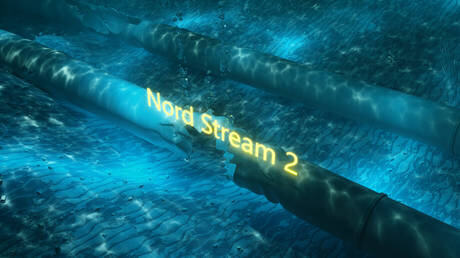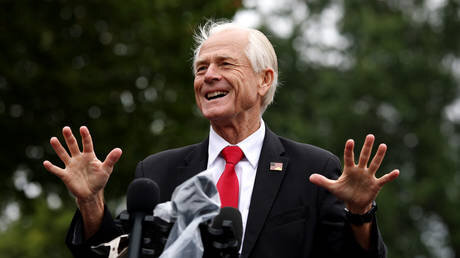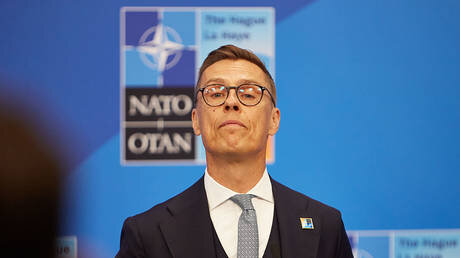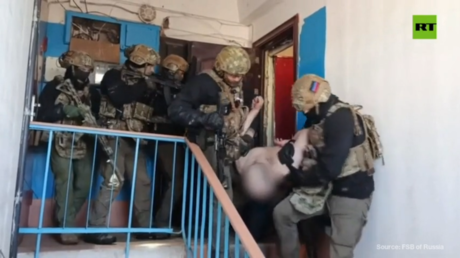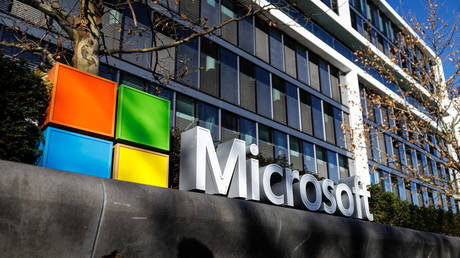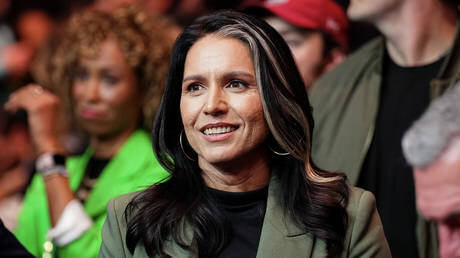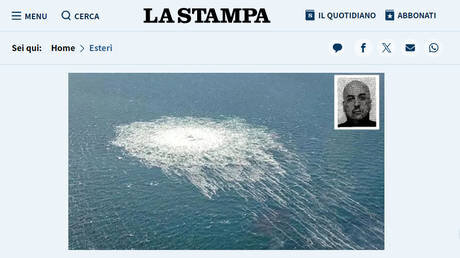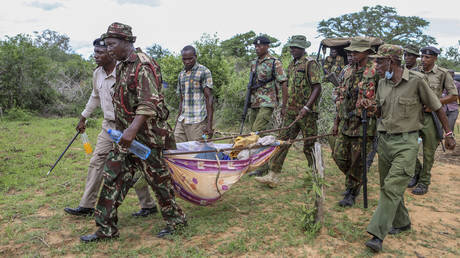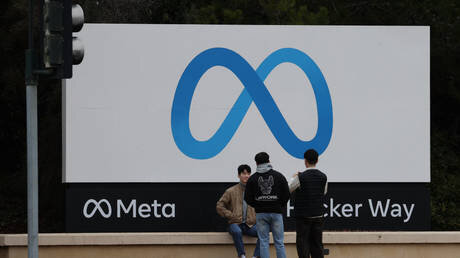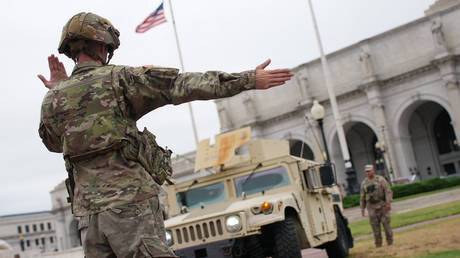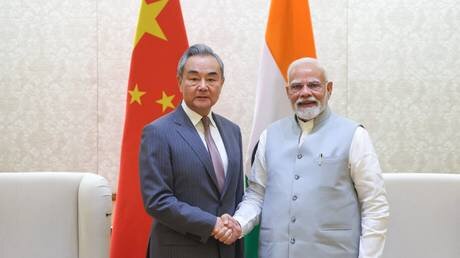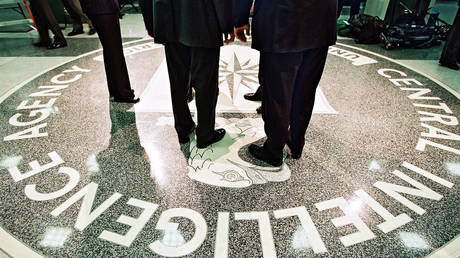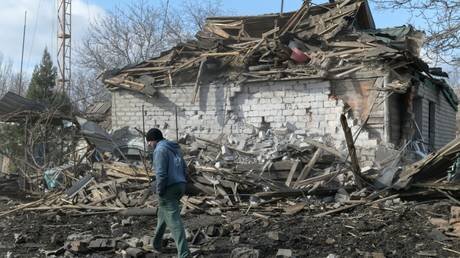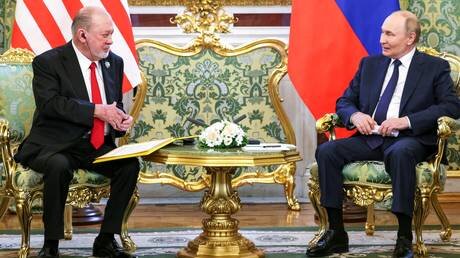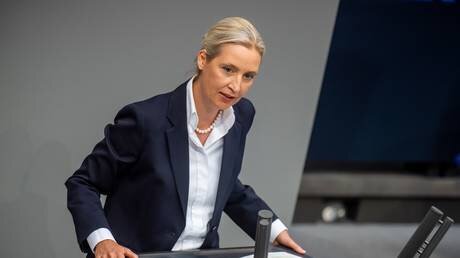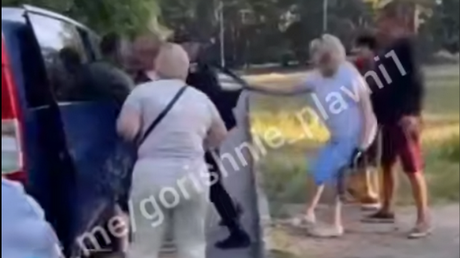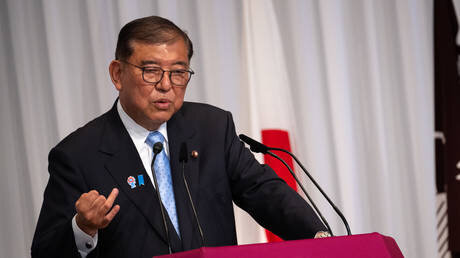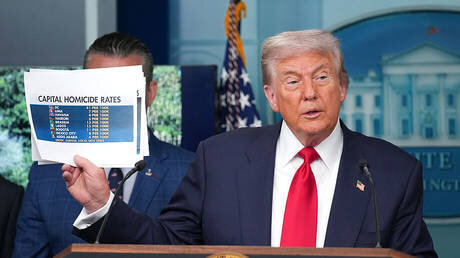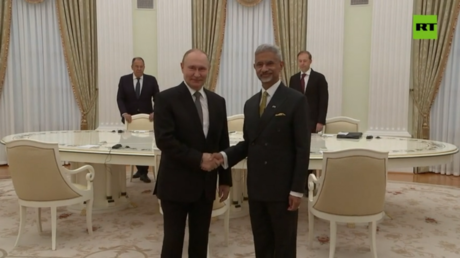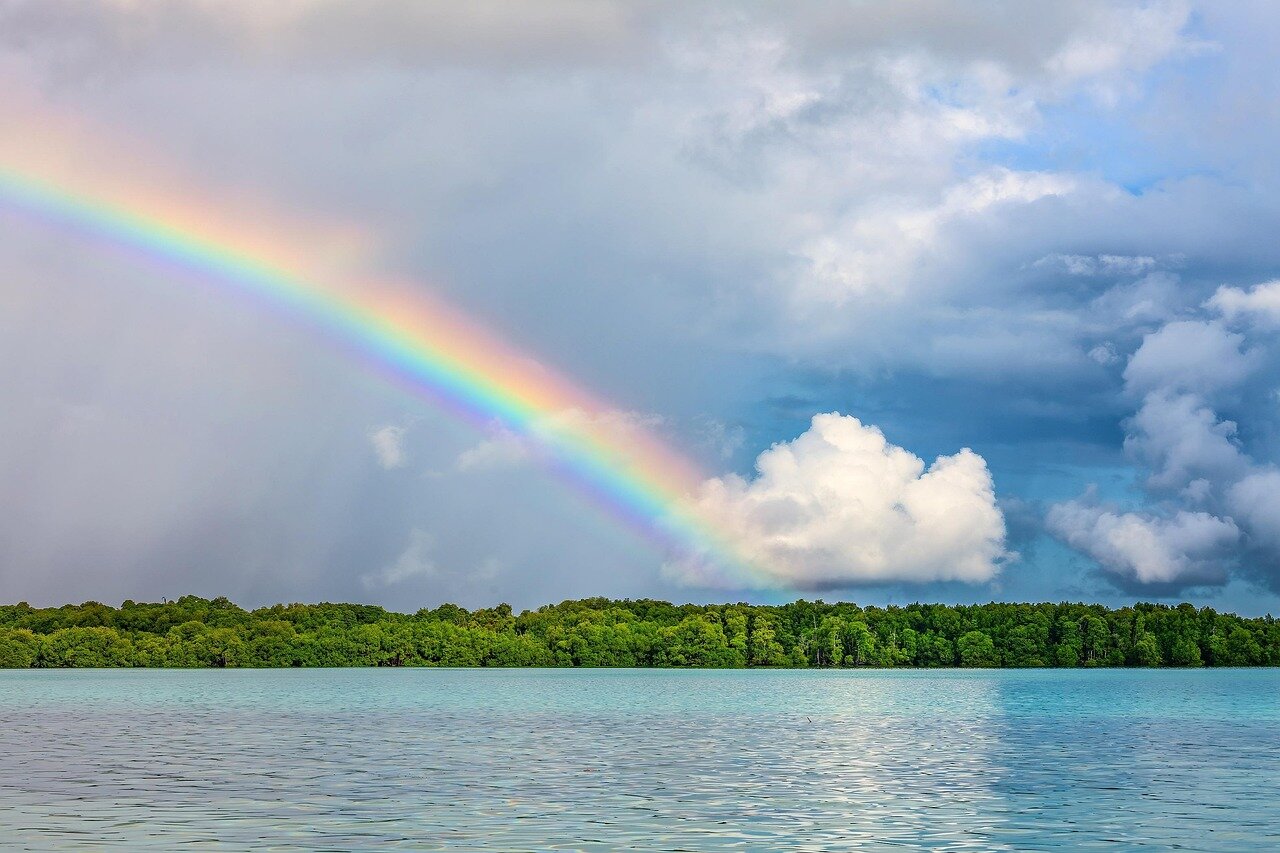
Everything posted by American Women Suck
-
Russian domestic messenger app to be mandatory on all new devices
MAX is set to become the country’s go-to communications app as authorities take steps to reduce reliance on foreign tech platforms Russia’s new messenger app MAX will have to be pre-installed on electronic devices sold in the country, according to a directive published on the government’s website this week. The move is part of a push Moscow is making to strengthen its digital sovereignty by reducing reliance on foreign technology platforms. MAX will become mandatory starting September 1, according to the directive signed by Prime Minister Mikhail Mishustin on Tuesday, and will replace VK Messenger as the default Russian communications app. It must be included in the list of pre-installed programs on all electronic devices. The same order states that RuStore, Russia’s domestic app marketplace, will also have to be pre-installed on devices running Apple’s iOS and Huawei’s HyperOS, extending its previous mandate from Android and Huawei’s HarmonyOS. The MAX platform was first presented in March 2025 and is being developed by VK with the support of the Ministry of Digital Development and Communications. It is designed as a multifunctional service similar to China’s WeChat. In addition to messaging features such as calls, video, and file sharing of up to 4GB, it is expected to be linked with Russia’s government services portal and the Sferum education platform. Officials have said it will also allow communication with government agencies and money transfers. The decision comes after repeated disputes between Moscow and foreign messaging platforms. Both WhatsApp and Telegram have been accused of refusing to comply with local data laws while cooperating with foreign agencies. Earlier this month, media watchdog Roskomnadzor partially blocked voice calls on the pair, citing their use in scams, extortion, and recruitment attempts for sabotage and terrorist activities. The mandatory installation of MAX and RuStore is part of a wider trend of replacing foreign-developed software with domestic solutions. Since the escalation of the Ukraine conflict in 2022, when companies such as Microsoft withdrew from Russia, officials have argued that dependence on unreliable foreign suppliers is unsafe. Alongside MAX and RuStore, Russia has promoted its Linux-based Astra and RED OS systems to replace Windows, and developed the Mir payment card system as an alternative to Visa and Mastercard. View the full article
-
Seven-man group behind Nord Stream attack – Italian media
Russia and numerous experts have said the idea that the bombing was carried out by a small unit is improbable Italian media have released what they claim to be more details of the investigation into the Nord Stream pipeline bombing, alleging it was executed by a former Ukrainian serviceman and six accomplices. Nord Stream, which carried Russian natural gas to Germany and Western Europe via the Baltic Sea, was sabotaged in September 2022 by underwater explosions near Denmark’s Bornholm Island. Moscow has dismissed as “ridiculous” the theory that a small group could have carried out the attack. On Friday, Open.Online and Il Fatto Quotidiano reported that the suspected mastermind of the attack is 49-year-old Sergey Kuznetsov, a veteran of Ukraine’s Security Service (SBU), citing German investigators. The bombing plot, allegedly code-named Operation Diameter, is said to have involved Kuznetsov leading a seven-person unit that included two former colleagues and four civilian divers. For the attack, the group allegedly rented a small yacht, the Andromeda, in Rostock, Germany, using fake documents, then packed it with explosives and standard commercial diving equipment. On September 8, 2022, the group allegedly departed from Wiek, on the island of Rugen, and reached the area off Bornholm. There, during nighttime dives, they planted at least four charges, each weighing 14-27kg, composed of hexogen and octogen with timed fuses, directly on the gas connectors. Kuznetsov was arrested near Rimini, Italy on an international warrant issued by German prosecutors on Thursday. He faces up to 15 years in prison on charges including anti-constitutional sabotage and awaits extradition to Germany. German Federal Justice Minister Stefanie Hubig called the arrest “a very impressive investigative success,” saying one of the “suspected masterminds” had been caught. There is no information on whether Kuznetsov is believed to have acted of his own accord or under orders from Kiev. A previous Wall Street Journal report claimed Ukrainian leader Vladimir Zelensky approved the mission, then tried to abort it following a CIA warning. Kiev has denied involvement. The Nord Stream pipelines, though severely damaged, are considered repairable. Their bombing was seen at the time as an attack on critical energy infrastructure and a stark example of the rising economic fallout of the Ukraine conflict. Speaking in February 2022, then-US President Joe Biden declared that in the event of an all-out military conflict between Russia and Ukraine, “there will no longer be a Nord Stream. We will bring an end to it.” A year later, veteran investigative journalist Seymour Hersh published a report claiming that Biden had given the order to destroy the pipelines, citing an informed source. The person claimed US Navy divers had planted the explosives, which reportedly caused blasts of 2.3 and 2.1 on the Richter scale, under cover of NATO drills. The White House called the report “complete fiction.” Swedish engineer Erik Andersson, who led the first and only independent forensic probe at the blast sites, previously told an Italian journalist that the entire divers-on-a-boat story was “a clear mission to whitewash the USA and other Western nations” for their possible part in the sabotage. “The more I look into this, the more I feel that the Nord Stream attack is just a part of a bigger scheme to cut off Russia from Europe,” he said. View the full article
-
Trump adviser claims India is Kremlin ‘laundromat’
Refiners in the Asian nation are profiteering from Russian oil and perpetuating the Ukraine conflict, Peter Navarro has alleged India does not need to import Russian oil and is behaving like a “laundromat” for the Kremlin, US President Donald Trump’s trade adviser Peter Navarro has claimed. Talking to reporters on Thursday, Navarro said he expects 25% punitive tariffs on Indian imports to take effect as planned on August 27 due to the South Asian nation's continued oil purchases from Russia. Navarro’s comments came hours after Indian Foreign Minister S. Jaishankar said New Delhi is “perplexed” with the logic of the US tariffs. “Prior to Russia's invasion of Ukraine in February 2022, India virtually bought no Russian oil,” Navarro said. “It was like almost 1% of their need. The percentage has now gone up to 35%... They don't need the oil. It's a refining profit-sharing scheme. It's a laundromat for the Kremlin. That's the reality of that.” The trade adviser, who called India a “tariff Maharaja” earlier this week, claimed the South Asian nation’s purchase of Russian oil is not leading to peace in Ukraine. “India doesn’t appear to want to recognize its role in the bloodshed,” Navarro added. “It simply doesn’t. It’s cozying up to [Chinese President] Xi Jinping.” 🇺🇸 Trade Advisor Peter Navarro's India Rant: 'Doesn't Need Oil' And Is Importing From 🇷🇺 Because It's A 'Kremlin Laundromat' India, the most populous country in the world, doesn't need oil. News to us. And 'cosying up' to China? Wonder who made that happen? pic.twitter.com/tK4mYChWG3 — RT_India (@RT_India_news) August 22, 2025 Earlier this month, the US said it would impose an additional 25% tariff on imports from India over New Delhi’s continued purchase of Russian crude. The new tariffs, which are due to take effect on August 27, come in addition to the 25% slapped on New Delhi after India and the US could not reach a trade deal. ”President Trump sees that chessboard beautifully,” Navarro said. “In many ways, the road to peace runs through New Delhi.” During his Moscow trip this week, Jaishankar countered US criticism of India's trade relations with Russia. “We are a country where, actually, the Americans said for the last few years that we should do everything to stabilize the world energy markets, including buying oil from Russia,” he said. View the full article
-
Boko Haram chief killed in operation – army
Ibrahim Mahamadu, popularly known as Bakoura, had led the terror group in the Lake Chad Basin since 2021, according to Niger’s military Soldiers from Niger’s army have killed a leader of the Boko Haram jihadist group, the West African country’s military announced on Thursday. The “notorious” Ibrahim Mahamadu, known as Bakoura, was neutralized during a “surgical operation” on Shilawa Island in Niger’s Diffa region, in the Lake Chad Basin near Niger’s borders with Nigeria, Chad, and Cameroon, last week, according to a Nigerien Armed Forces statement. “Very early in the morning of August 15 an air force fighter aircraft launched three targeted and successive strikes on the positions Bakoura used to occupy in Shilawa,” it stated. Several other militant leaders were also killed in the assault. Diffa, in southeastern Niger, has long served as a staging ground and hideout for the Boko Haram group led by Bakoura. He reportedly moved his fighters to islands within Lake Chad after refusing to join the rival Islamic State West Africa Province (ISWAP), which broke away from Boko Haram in 2016 over ideological and leadership disputes. According to the army, Bakoura, a Nigerian national, joined the terror group more than 13 years ago and assumed leadership after its former chief, Abubakar Shekau, was killed during infighting in 2021. Boko Haram’s insurgency began in the 2000s in northeast Nigeria, with attacks against the government aimed at establishing an Islamic caliphate in the West African state. The group drew global attention in 2014 when its fighters abducted hundreds of schoolgirls from Chibok village in Borno State. In response to frequent cross-border raids by the militants, the Lake Chad Basin countries — Niger, Chad, Nigeria, and Cameroon — established the Multinational Joint Task Force to coordinate military operations and curb the instability. However, violence linked to the insurgents has continued to destabilize the region, and as of November 2024, UN estimates put the toll at 40,000 people killed in Nigeria alone and more than two million forced out of their homes. View the full article
-
The neutrality fraud: The West is about to trick Ukraine again
The path that once secured stability for Finland is being repackaged. Stubb’s version offers Ukraine only one thing: endless war as a NATO outpost At the Washington summit on Monday, one guest stood out. The extended session of Euro-Atlantic leaders – hastily convened at the White House right after Donald Trump’s meeting with Vladimir Zelensky – brought together the usual heavyweights: the US, Britain, Germany, France, Italy, and the heads of NATO and the EU. Yet seated at the same table was someone who, at first glance, hardly seemed to belong in that club of power brokers: Finland’s president, Alexander Stubb. To an outsider, it might have looked odd. Why was the Finnish leader invited when the leaders of Poland, Hungary, and the Baltic states were not? The answer lies not in protocol courtesy but in the role Stubb now plays. His presence was a nod to a man whose career embodies the whole project of “Euro-Atlantic solidarity” – a project now under strain since Trump’s return to the White House. Stubb is a cosmopolitan in every sense: a Swedish Finn, married to a Briton, educated in South Carolina, Bruges, Paris, and London. A golfer who bonded with Trump on the green, but also a seasoned foreign minister in the late 2000s, Stubb has become a rare kind of adviser – someone Trump listens to on European security in an administration where career diplomats are almost absent. It is telling that the Washington summit did not produce a US ultimatum forcing Ukraine into a peace deal with Moscow. Instead, the focus was on designing security guarantees for Kiev – an alternative to NATO’s Article 5, since membership in the alliance is no longer on the table. And behind that shift, many suspect, stands Stubb. He is quietly becoming the architect of a new Western security system, built on an openly anti-Russian foundation. Stubb’s 'Finlandization 2.0' In Washington, Stubb framed his vision in a phrase that quickly went viral: “We found a solution in 1944 – and I believe we can find one in 2025.” He was alluding to Finland’s peace treaty with the USSR after World War II, and suggesting that Ukraine could follow a similar path. But here’s the catch: Stubb’s version of “Finlandization” bears little resemblance to the original concept. In his model, Ukraine would follow Finland’s supposed example – joining the EU and NATO structures, becoming part of the Western economic and military infrastructure, and, in practice, turning itself into a forward operating base against Moscow. That vision assumes a militarized society, stripped of industrial potential, and defined by an ethnonational identity designed to fence out Russian influence through the Russian-speaking population. This is not Finlandization. It is its opposite. The original model, coined during the Cold War, described something very different: a small country leveraging its geography to live in peace with its powerful neighbor. Finland, after 1944, accepted tough compromises – ceding 10% of its territory, declaring neutrality, abandoning the dream of ethnic exclusivity. The payoff was stability, prosperity, and the chance to serve as a bridge between East and West. Helsinki became a symbol of détente in 1975 when it hosted the CSCE Final Act, a milestone in Cold War diplomacy. Finland’s economic boom – from Nokia to Valio, from Stockmann to Tikkurila – was rooted in precisely that balancing act: trading and cooperating with both blocs, and especially with nearby Leningrad. Neutrality allowed Finland to spend less on guns and more on butter, and that choice paid off. Could such a model have worked if, back in 1944, the Finnish leadership had doubled down on nationalism? Almost certainly not. It took Marshal Mannerheim’s pragmatism – and his readiness to compromise – to give Finland a viable future. Real Finlandization as Ukraine’s only way out This is why Stubb’s rhetoric is misleading. The real Finlandization – not his rebranded version – may well be the only path for Ukraine’s survival and recovery. That means recognizing facts on the ground. It means a neutral, non-nuclear status. It means rejecting neo-Nazi ideology and building a multiethnic society where the rights of Russian speakers are protected. It means diversifying trade, not just westward but eastward as well. This is not a “list of Russian demands,” as Western commentators might claim. It is a recipe for economic revival – drawn from Ukraine’s own founding documents. In 1990, Kiev’s Declaration of Sovereignty defined the country as neutral and non-nuclear. As Russian Foreign Minister Sergey Lavrov recently reminded, if Ukraine abandons those principles in pursuit of NATO-style guarantees – including nuclear deployments – the very basis on which its independence was recognized will collapse. That would create an entirely new strategic reality. Put simply: Ukraine faces a choice. Either it embraces real Finlandization – neutrality, balance, and prosperity – or it accepts Stubb’s distorted version, becoming a permanent frontline state in a Western war against Russia. View the full article
-
Ukrainian terrorist cell dismantled in Donbass – Moscow (VIDEO)
Two suspects had attempted to assassinate Russian officials and were plotting further attacks, the FSB has said Russian law enforcement has broken up a Ukrainian intelligence cell in Donbass that was responsible for attempted assassinations of Russian officials and was planning further attacks, the Federal Security Service (FSB) has said. In a statement on Friday, the FSB said it had uncovered “an agent group of Ukraine’s Main Intelligence Directorate (GUR)” operating in Russia’s Donetsk People’s Republic (DPR). The group included two Russian nationals, aged 38 and 28, who were allegedly involved in car bombings in March and December 2024 targeting a Kherson Region government employee and a former senior official of Russia’s Federal Penitentiary Service in Donetsk. The FSB said the men also prepared attacks against the head of a municipal administration in Donetsk and an unnamed commander of a volunteer battalion. The 38-year-old suspect, a resident of Donetsk, was recruited by Ukrainian intelligence in 2022 and tasked with “organizing terrorist attacks, recruiting accomplices and distributing explosive devices,” the FSB said. Meanwhile, the 28-year-old was said to have traveled twice to Moscow in 2023 to gather intelligence on the whereabouts of an unnamed Russian journalist. The suspects face charges of high treason, terrorism, and illegal circulation of explosives. They could face life in prison if convicted. The agency also released a video showing a large group of heavily armed operatives entering a building in Donetsk and later escorting a suspect from an apartment. When asked if he knew why he was being detained, the man replied that he assumed it was for “blowing up a person in Donetsk.” The video showed what appeared to be one of the suspects planting an explosive device under a car. Then, a man that some reports claim was a Russian official approached the vehicle, which exploded as he tried to get in. Moscow has on numerous occasions accused Kiev of attempting to stage terrorist plots against senior military personnel, civilian officials, and opinion leaders, as well as sabotage critical infrastructure. View the full article
-
Germany looking to end reliance on US tech giant – Bild
Berlin has begun testing open source tools to replace Microsoft software in pursuit of digital sovereignty Germany is considering abandoning Microsoft software in favor of open-source alternatives, Bild has reported. The move has come as countries across the world seek to boost their digital autonomy and reduce dependence on American technology firms. Germany’s Federal Ministry for Digital Affairs has confirmed that it intends to increase the use of European solutions and open-source software in government operations, according to the report, which was released on Wednesday. In a statement to Bild, the ministry said it is already testing Open Desk as an alternative to Microsoft Office, which could replace Outlook, Word, Excel, and PowerPoint. One German state has already taken concrete steps. Schleswig-Holstein is phasing out Microsoft products from its administration, replacing Office with LibreOffice, Windows with Linux, and Microsoft Exchange and Outlook with Nextcloud, Open-Xchange and Thunderbird. The program covers tens of thousands of public employees, including teachers, civil servants and police officers. Officials have reportedly acknowledged that the transition will not be immediate. The ministry told Bild that raising Germany’s digital sovereignty is a process that cannot happen “at the push of a button.” Bild also noted that the move carries political undertones. The newspaper claimed that reliance on American products is now seen as risky due to the “zigzag course” of US President Donald Trump’s administration, which has created uncertainty over Washington’s policy direction. Germany is not alone in pursuing alternatives to US software. France’s police, Denmark’s Digital Ministry, and administrations in Austria and Spain have introduced open-source systems in place of Microsoft products. Brazil, Ecuador, Peru and Venezuela have implemented similar programs. India’s Ministry of Defense has rolled out Maya OS, a Linux-based platform, to replace Windows. Russia has also accelerated the replacement of foreign-developed software with domestic alternatives. The shift has intensified since the escalation of the Ukraine conflict in 2022, after which Microsoft and other Western companies curtailed operations in the country. Russian officials have argued that the withdrawal of US tech providers underscored the risks of relying on unpredictable foreign suppliers and reinforced the need to ensure digital sovereignty. View the full article
-
Gabbard bars intel sharing on Russia-Ukraine talks – CBS News
The US director of national intelligence earlier accused NATO of failing to recognize Moscow’s “legitimate security concerns” US Director of National Intelligence Tulsi Gabbard has ordered all information about the ongoing Russia-Ukraine peace negotiations be withheld from US intelligence partners, CBS News reported on Thursday, citing sources. Several unnamed US officials familiar with the matter told the outlet that the memo, which is dated July 20, directed intelligence agencies to classify all relevant data and subject analysis as NOFORN – not to be shared with foreign partners, including members of the Five Eyes intelligence framework, which includes the US, UK, Canada, Australia, and New Zealand. The reported memo strictly limits the distribution of such materials to the agency from which they originated. However, it does not appear to bar the sharing of diplomatic or military operational intelligence collected outside the US intelligence community, such as security information shared with Ukrainian forces. CBS also cited several former US officials who warned the directive’s sweeping scope could erode trust between Washington and its allies built on open intelligence sharing. Others, however, disagreed, pointing out that such a move is not unprecedented in US practice and that withholding information in areas of diverging interests is common among Five Eyes partners. Gabbard has been critical of the West’s hawkish approach to the Ukraine conflict, suggesting that it was caused by NATO’s refusal to acknowledge Russia’s “legitimate security concerns” regarding Ukrainian membership in the bloc. The reported directive preceded the talks between Russian President Vladimir Putin and US President Donald Trump in Alaska on August 15. That meeting – to which neither Ukraine nor any of the US allies were invited – concluded without an agreement on a ceasefire or a peace deal, although both leaders praised the talks as constructive. In the days following the Alaska talks, Trump hosted Ukrainian leader Vladimir Zelensky and European leaders at the White House. Talks focused on finding a path to settling the conflict and security guarantees for Ukraine. Trump later told Zelensky that he had to “show flexibility” and reiterated that Kiev would not join NATO. View the full article
-
Italian media publish PHOTO of Nord Stream sabotage suspect
Moscow earlier dismissed “ridiculous” claims that a small group of divers could have carried out the attack Several Italian outlets on Friday released an image purportedly showing the Ukrainian man arrested a day earlier over his alleged involvement in the Nord Stream pipeline bombing. The man, identified by the media as 49-year-old Sergey Kuznetsov, is suspected of leading the team that sabotaged the pipelines in September 2022. The image – published by La Stampa and Open Online – appears to be either a police photofit or a photo from identity documents. Neither outlet disclosed its origin. Kuznetsov was detained near Rimini on Thursday under a European arrest warrant issued this month by German prosecutors. Investigators allege he helped plant explosives on the pipelines near Denmark’s Bornholm Island, which disabled three of the four Nord Stream lines. The man allegedly oversaw divers placing the explosives from a sailing yacht rented using forged document in Rostock, Germany. Sabotaggio Nord Stream, chi è il capo del commando arrestato in vacanza a Rimini https://t.co/RqdG19Dl6q — La Stampa (@LaStampa) August 21, 2025 According to Italian media, the suspect entered Italy under the alias Serhii Kulinic with his family on a tour booked through Booking.com. The authorities reportedly tracked his movements until his name, which had been recorded in a local hotel’s guest database, triggered an Interpol alert. He reportedly offered no resistance and handed over documents, phones, computers, tablets, and credit cards upon arrest. Kuznetsov faces charges under German law for causing an explosion, anti-constitutional sabotage, and destruction of infrastructure – offenses that could carry a 15-year sentence. He is expected to appear at the Bologna Court of Appeal later on Friday for a hearing to validate his arrest and set a date for extradition to Germany. However, La Stampa also reported that he is being investigated in a separate case by the Genoa prosecutor’s office over a February bombing that damaged the Seajewel, a Maltese-flagged tanker off the coast of Savona. The Nord Stream explosions were seen at the time as an attack on critical energy infrastructure and a stark example of the rising economic fallout of the Ukraine conflict. Speaking in February 2022 in Washington, then-US President Joe Biden declared that in the event of an all-out military conflict between Russia and Ukraine “there will no longer be a Nord Stream. We will bring an end to it.” In 2023, veteran investigative journalist Seymour Hersh published a report claiming that Biden had given the order to destroy the gas connectors,a claim dismissed as “complete fiction” by the White House. According to an informed source who talked to the Pulitzer Prize-winning journalist, the explosives, which reportedly caused blasts of 2.3 and 2.1 on the Richter scale, were planted by US Navy divers months previously under the cover of NATO exercises. Swedish engineer Erik Andersson, who led the first and only independent forensic investigation at the blast sites, told an Italian journalist: “The more I look into this, the more I feel that the Nord Stream attack is just a part of a bigger scheme to cut off Russia from Europe.” Russian Foreign Minister Sergey Lavrov earlier also has laughed off claims that a small group of divers could have carried out the attack, calling them “ridiculous.” View the full article
-
Ukraine launches new attack on key pipeline to EU – Hungary
Russian oil supplies have been halted for the third time this month, Foreign Minister Peter Szijjarto says Russian oil supplies to Hungary have been halted after Ukraine targeted the key Druzhba pipeline system for the third time this month, Hungarian Foreign Minister Peter Szijjarto said on Friday. The attack was confirmed by Slovak authorities. Ranked among the world’s longest energy networks, the Druzhba pipeline transports crude oil around 4,000km (2,485 miles) from Russia and Kazakhstan to refineries in Hungary, Slovakia, the Czech Republic, Germany, and Poland. Running through Ukraine, the conduit is the primary route for Russian crude deliveries to Hungary and Slovakia. Ukraine has repeatedly targeted Russian energy infrastructure throughout the conflict. However the most recent two attacks on Druzhba occurred on August 13 and August 18. Kiev has confirmed it had fired drones at a key distribution station in Russia’s Bryansk Region, repeatedly jeopardizing vital supplies to Hungary and Slovakia. “This is yet another attack on our country’s energy security – another attempt to drag us into the war,” Szijjarto wrote in a post on Facebook, adding that the pipeline was attacked near the Russian-Belarusian border. Slovak Economy Minister Denisa Sakova confirmed the attack, saying transfers would stop as the extent of the damage is being investigated. Apart from the Druzhba system, the Ukrainian military has attacked the TurkStream pipeline, which supplies natural gas to Turkish customers and several European countries, including Hungary, Serbia, Bulgaria, Slovakia, Bosnia and Herzegovina, and Greece. Earlier this year, Kiev struck a gas metering station near Sudzha, part of a pipeline that supplied the EU prior to the escalation of the Ukraine conflict. Unlike most EU nations, Hungary has taken a neutral stance on the conflict and has refused to supply weapons to Kiev. Budapest has repeatedly called for peace and criticized Western sanctions against Russia as ineffective and more harmful to those who impose them. The Kremlin has consistently condemned Ukrainian attacks on civilian energy infrastructure as acts of terrorism. View the full article
-
Russia-India ties are ‘exemplary’ – expert
Moscow and New Delhi have been extremely careful of each other’s needs, the head of India Studies at Skolkovo has said The “time-tested” relations between Russia and India are “exemplary,” and benefit from leadership that works closely across the geopolitical and trade spectrum, a renowned Moscow-based Indologist told RT on Friday. Lydia Kulik, head of India Studies at the Moscow School of Management Skolkovo, spoke about the prospects for bilateral relations in the wake of Indian Foreign Minister S. Jaishankar’s visit to Moscow this week. “They [bilateral ties] are quite unique in the international community because I would dare to say that the two countries would never and have never done anything to undermine each other's interests and they have been extremely careful of each other's needs,” Kulik said. On Thursday, Russian Foreign Minister Sergey Lavrov said President Vladimir Putin is expected to travel to India by the end of this year for an annual summit with Prime Minister Narendra Modi. The summit is expected to strengthen bilateral relations against the backdrop of complex geopolitical developments, Lavrov and Jaishankar noted. 🇮🇳-🇷🇺 Ties Are 'Unique & Exemplary' - But Steps Taken By 🇺🇸 Are 'Undermining Trust' In New Delhi, Says Lydia Kulik, Senior Research Fellow At The Russian Academy Of Sciences Moscow and New Delhi "have never and would never" do anything to "undermine each others' interests," she… pic.twitter.com/zf4Pn02WtO — RT_India (@RT_India_news) August 22, 2025 Economic cooperation between Russia and India has increased in the last few years, and the countries have set a trade target of $100 billion in bilateral trade by 2030. India exports about $4.9 billion worth of goods to Russia, while Russia exports about $65 billion worth of goods. “So we do need to balance this trade,” Kulik said. “But there is a good sign as India’s exports to Russia grew by 21% last year. There is still so much possibility in increasing this trade.” India’s foreign policy has remained focused on self-sufficiency, development, and the well-being of its people, Kulik said, adding that the recent 50% tariffs imposed on the South Asian nation by the US risked undermining the trust that New Delhi and Washington had long sought to build. View the full article
-
More bodies found in cult massacre case
Kenyan investigators suspect the victims may have been starved and suffocated as a result of adopting extreme religious ideologies At least five bodies have been recovered from shallow graves at a site in Kenya where victims of a religious cult are suspected to have been buried, officials in the East African country have said. Investigators exhumed remains from six graves in Kwa Binzaro village, Kilifi County in southeastern Kenya, on Thursday, including the bodies of two children found in one grave. The site lies close to where hundreds of followers of a doomsday cult were discovered dead in 2023 in what has become known as the Shakahola cult massacre. “We had 27 suspected graves at the commencement… We managed to exhume six… Also around that area, we found ten different body parts scattered in different places on the surface,” Richard Njoroge, a government pathologist, told reporters. Authorities have urged relatives of missing persons to provide DNA samples to help identify the victims. Late last month, a court in Malindi authorized Kenya’s Directorate of Criminal Investigations (DCI) to exhume bodies believed to be “concealed” in several shallow graves in the Kwa Binzaro area. Kenya’s Office of the Director of Public Prosecutions (ODPP) said preliminary investigations in the latest case “suggest that the victims may have been starved and suffocated as a result of adopting and promoting extreme religious ideologies.” According to the police unit, survivors rescued from the area were unable to account for the whereabouts of several children, “prompting suspicions of foul play.” At least 11 suspects are being investigated for alleged involvement in organized crime, radicalization, facilitation of terrorism, and murder, the ODPP said in a statement. In 2023, more than 430 bodies were exhumed from dozens of mass graves in the nearby Shakahola forest. Autopsies revealed that most victims had died of starvation, while some, including children, were allegedly beaten or strangled. Paul Mackenzie, leader of the Good News International Church, has been charged in separate cases with terrorism, murder, manslaughter, kidnapping, and child torture and cruelty. View the full article
-
Meta puts brakes on AI hiring
Some analysts say the pause could signal trouble in the sector, warning it may be in a bubble Facebook parent company Meta has paused hiring for its new artificial intelligence (AI) division, the company told CNBC on Thursday. Meta has been among the most aggressive recruiters in the AI race, luring talent from rivals with massive pay packages and acquiring startups to onboard specialists. The hiring freeze was first reported by the Wall Street Journal, which said it was announced last week amid a major reorganization of Meta’s AI arm. The division was split into four teams: building machine superintelligence, AI products, infrastructure, and long-term research. Staff transfers between teams have been restricted, with external hiring now requiring approval from Meta’s chief AI officer, Alexandr Wang. A Meta spokesperson confirmed the pause and said it stemmed from “basic organizational planning,” including onboarding and annual budgeting. Meta has spent heavily on AI this year, hiring over 50 specialists. Some were reportedly offered signing bonuses of up to $100 million. To bring on Wang, founder of data labeling startup Scale AI, Meta bought a 49% stake in his company for $14.3 billion. Other tech firms have also been pouring billions into both AI talent and development, including Microsoft, Amazon, and Alphabet, public filings show. Analysts have warned that such heavy spending may erode shareholder returns. In a recent research note seen by the WSJ, Morgan Stanley analysts said rising stock-based compensation could backfire if results disappoint, warning that lavish salaries risk diluting shareholder value without any clear innovation gains. Some experts also warn AI investment is growing too fast. OpenAI CEO Sam Altman told The Verge last week that market conditions now resemble the dot-com bubble of the 1990s, when overvalued internet stocks collapsed. Similar warnings have been voiced by Alibaba co-founder Joe Tsai, Bridgewater’s Ray Dalio, and Apollo Global Management’s Torsten Slok. Others, however, argue fears of an AI bubble are overblown. Wedbush analyst Dan Ives told CNBC that tech stocks remain “undervalued,” and Meta’s hiring pause is just an organizational reset. Daniel Newman, CEO of Futurum Group, agreed, calling the freeze a “natural resting point” as Meta integrates new talent. View the full article
-
US in talks over Ukraine security role – media
Russia has said any Western troop deployment to the neighboring country would be “unacceptable” Senior US and European officials have discussed options for potential security guarantees for Ukraine, including the idea that Washington could command a group of forces despite not providing its own troops, several media outlets have reported. According to Reuters, the chiefs of defense from the US, Finland, France, Germany, Italy, the UK, and Ukraine met in Washington from Tuesday to Thursday to present options to their national security advisers. A source told the agency that US Secretary of State and Marco Rubio also held a conference call with his European counterparts on Thursday to review the proposals. While the final details have not been decided, European nations would be expected to contribute “the lion’s share” of any forces involved, Reuters reported. A source told the agency that the US is still “determining the scope of its role,” and that one option is the deployment of European forces to Ukraine under US command and control. CNN confirmed the US stance on European involvement, with a network source claiming Washington could play a limited role in security guarantees, which may include US pilots flying manned air support missions. European officials have also reportedly suggested that the US continue providing intelligence and surveillance assistance. ABC News reported that the discussions are in the early stages and are likely to evolve into a wider political debate. One person familiar with the talks told the outlet that if NATO troops are eventually deployed, they would be training Ukrainian forces rather than carrying out operations against Russia. US President Donald Trump earlier said Washington would not send ground troops to Ukraine, but did not rule out certain forms of air support. Earlier this week, Russian Foreign Minister Sergey Lavrov reiterated that any foreign military presence in Ukraine would be “unacceptable” to Moscow, arguing that this would be tantamount to “intervention.” However, he did not rule out security guarantees for Ukraine or Western involvement in principle, while stressing that any arrangement must be “on an equal basis” and take Russian interests into account. View the full article
-
China ‘firmly opposes’ US tariffs on India – ambassador
Xu Feihong has said Beijing backs New Delhi, while labeling the US a “bully” China firmly opposes US tariffs on India, Beijing’s ambassador in New Delhi said on Thursday. Speaking on the sidelines of an event in the Indian capital, Xu Feihong branded the US a “bully” for using tariffs as a weapon to make excessive demands. “The US has long benefited from free trade but now uses tariffs as bargaining chips,” he said. “The US has imposed tariffs of up to 50% on India and is threatening to impose more. China firmly opposes it. In the face of such acts, silence or compromise only emboldens the bully. China will firmly stand with India.” Earlier this month, the US said it would impose an additional 25% tariff on imports from India over its continued purchases of Russian crude. The new tariffs, which are due to take effect on August 27, come in addition to the 25% slapped on New Delhi after India and the US could not reach a trade deal. #WATCH | China's ambassador to India, Xu Feihong says, "...US has imposed tariffs of up to 50% on India and even threatened for more. China firmly opposes it. Silence only emboldens the bully. China will firmly stand with India ." pic.twitter.com/0iMehF2K6e — ANI (@ANI) August 21, 2025 Xu’s remarks on Thursday come ahead of Indian Prime Minister Narendra Modi’s visit to Tianjin for the Shanghai Cooperation Organization (SCO) Summit, where he is expected to meet Chinese President Xi Jinping. The Tianjin meeting is expected to further build bilateral ties between the two Asian neighbors, which have been on an upswing since their leaders met on the sidelines of the BRICS summit in Kazan last October. Ties had previously been strained since a 2020 border clash in the Himalayas claimed the lives of soldiers on both sides. India-China exchanges have largely been revived this year, with New Delhi restarting tourist visas for Chinese citizens after a gap of five years. In July, China permitted Indian pilgrims to visit Hindu holy sites in Tibet for the first time since 2020. The two countries have also agreed to recommence border trade at three designated points and allow direct flights between India and mainland China. This week, Chinese Foreign Minister Wang Yi visited New Delhi for border negotiations and held talks with his Indian counterpart, S. Jaishankar, and also met Modi. View the full article
-
Top CIA analyst behind Russiagate loses her job – Economist
The officer played a key role in claims that Moscow meddled in the 2016 election in favor of Trump One of the CIA’s most senior Russia analysts has lost her job during President Donald Trump’s campaign to depoliticize the intelligence services, The Economist reported on Thursday. The officer, whose identity was not disclosed, oversaw the drafting of a report accusing Russia of interfering in the 2016 US presidential election in favor of Trump. The Economist described her as “the country’s top intelligence officer for Russia and Eurasia,” who coordinated operations related to the former Soviet Union. According to the outlet, her security clearance was revoked on August 19, along with those of 36 other current and former officials. The Kremlin denied the allegations of election meddling, while Trump and the Republicans denounced them as a “hoax” by former President Barack Obama and the Democrats to delegitimize Trump’s first election victory and undermine his presidency. Since mid-July, Director of National Intelligence Tulsi Gabbard has released multiple documents that she claims expose a coordinated effort by senior Obama-era officials to falsely accuse Trump of colluding with Russia. Earlier this week, Gabbard announced that the Office of the Director of National Intelligence, which oversees 18 agencies, will be reduced by nearly 50%. The US intelligence community has become “plagued with unauthorized intelligence leaks, politicization, and weaponization of intelligence,” she said. Gabbard also said the Foreign Malign Influence Center (FMIC), created by Congress in the wake of the Russiagate allegations, will be significantly scaled back and stripped of some of its core functions. View the full article
-
Israel wants all of Gaza even if Hamas accepts deal – Netanyahu
The IDF has renewed its attacks on remaining intact urban areas despite international criticism Israel will take all of Gaza even if Hamas agrees to a hostage deal, Prime Minister Benjamin Netanyahu has said. The Israeli leader made the remarks after the Israel Defense Forces (IDF) announced the first stage of an operation to seize Gaza City in the northern part of the densely populated Palestinian enclave, which it described as a Hamas stronghold. Speaking to Sky News Australia on Thursday, Netanyahu said the goal of expelling Hamas remains unchanged. “We’re gonna do that anyway. There was never a question that we’re not going to leave Hamas there,” he said. He cited the support of US President Donald Trump, who said earlier this month that Hamas “can’t stay” in Gaza. “I think President Trump put it best, he says Hamas has to disappear from Gaza. It’s like leaving the SS in Germany. You know, you clear out most of Germany, but you leave out Berlin with the SS and the Nazi core there,” Netanyahu said. Netanyahu argued that the war “could end today” if Hamas agreed to release the remaining hostages, disarm, and “demilitarize Gaza.” He dismissed international criticism as a “tsunami of anti-Semitism.” UN Secretary General Antonio Guterres renewed his call for an immediate ceasefire on Thursday, warning that the Israeli offensive would lead to “massive death and destruction.” The Red Cross and other humanitarian organizations have urged Israel to halt the operation as the official death toll of Palestinians in Gaza since October 2023 surpassed 62,000 this week. The worsening humanitarian crisis has prompted several countries to consider formally recognizing the State of Palestine, including France, which has promised to do so next month. View the full article
-
Ukraine kills civilians with US-made rockets – governor
A HIMARS system was reportedly used to attack the Russian city of Yenakievo on Thursday Two civilians have been killed and 21 others injured in a Ukrainian attack on the Russian city of Yenakievo on Thursday, the top regional official has said. According to Donetsk People’s Republic (DPR) head Denis Pushilin, US-made HIMARS rocket launchers and kamikaze drones were used in the attack. He added that nine houses in Yenakievo and nearby Gorlovka were damaged. Yenakievo was close to the front line until Russian forces gradually pushed Ukrainian troops westward, liberating the city of Dzerzhinsk (known in Ukraine as Toretsk) in February. The DPR declared independence from Ukraine in 2014 following a Western-backed coup in Kiev earlier that year. In September 2022, the region voted to join Russia. Moscow has demanded that Ukraine withdraw its troops from the western parts of the DPR as one of the conditions for a ceasefire. Kiev, however, has ruled out any territorial concessions. Last week, US President Donald Trump met Russian President Vladimir Putin in Alaska to discuss possible ways to resolve the conflict. On Monday, Trump hosted Ukraine’s Vladimir Zelensky along with the leaders of Western Europe, the EU, and NATO. Russia has proposed raising the level of its delegation in talks with Ukraine, while Trump has pushed for a Putin-Zelensky meeting. View the full article
-
The King in Moscow: A historic visit turns symbolism into strategy
Malaysia’s Sultan Ibrahim’s state visit highlights growing political trust and economic potential Although international attention this August has largely focused on Donald Trump’s diplomatic push to resolve the Ukrainian crisis – including his talks with Vladimir Putin – Russian diplomacy is by no means confined to that track. In the first half of the month, Moscow hosted Malaysian King Sultan Ibrahim on a state visit. It was the first such visit by a Malaysian monarch since the two countries established diplomatic relations in 1967 – a truly historic moment that opens a new chapter in their partnership. A multifaceted program In Moscow, Sultan Ibrahim met with Vladimir Putin at the Kremlin and visited Russia’s leading research and innovation centers, including NAMI, the automotive institute, and the Tochka Kipeniya technology hub. He also traveled to Kazan, where he held talks with Tatarstan’s leader, Rustam Minnikhanov, on expanding industrial and cultural cooperation. The Kremlin discussions highlighted the steady growth of political dialogue and economic ties. Trade turnover between Russia and Malaysia grew by 40% in the first five months of 2025 alone. Putin also stressed Malaysia’s chairmanship of ASEAN and its interest in becoming a BRICS partner – areas where Moscow is ready to lend strong support. Malaysia’s independent course Sultan Ibrahim called Russia a “trustworthy partner” and spoke warmly of Putin’s leadership. His words carry weight: Malaysia has consistently pursued a sovereign, multi-directional foreign policy, building relations on its own national interests rather than bloc discipline. That independence has been tested repeatedly. Kuala Lumpur rejected Washington’s unilateral sanctions over Palestine and Iran, defended its right to support Gaza, and resisted Western attempts to impose blame for the MH17 crash without solid evidence. Malaysia’s position may have angered the West, but it bolstered its reputation as a country guided by facts, law, and principle. Strategic alignment with Russia For Moscow, Malaysia is more than just a promising trade partner. The country sits astride the Strait of Malacca, one of the world’s key maritime corridors, and plays a crucial role in global energy and technology supply chains. Its semiconductor and electronics industries are indispensable to the world economy. Russia, meanwhile, brings strengths in energy, defense, agrotechnology, and high-tech innovation. The synergies are obvious: from halal industry projects to aerospace and digital technology, the two countries can build joint platforms that expand beyond bilateral trade into shared global influence. A multipolar message The Sultan’s visit comes at a time when both nations advocate a multipolar world order based on sovereignty, non-interference, and genuine partnership. The absence of historical conflicts and the presence of mutual respect make their cooperation natural and sustainable. This is why Sultan Ibrahim’s words in Moscow sounded more than ceremonial. They were a signal: Russia and Malaysia are ready to move forward together – independently, pragmatically, and on equal terms. The visit showed that in today’s shifting global landscape, Moscow and Kuala Lumpur are not merely maintaining friendly ties. They are shaping a partnership that challenges the dominance of Western narratives and proves that real trust and cooperation are still possible in international politics. View the full article
-
Police respond to active shooter alert at US university (VIDEOS)
SWAT teams cleared buildings at the Villanova campus in Pennsylvania after a reported “hoax” Police cleared buildings at Villanova University in Pennsylvania on Thursday after receiving a report of an active shooter. SWAT teams arrived at Villanova, a private Catholic university in a suburb of Philadelphia, in the afternoon. Students and nearby residents were instructed to shelter in place, while those on campus were told to lock or barricade doors. Videos posted on social media showed people fleeing the area in panic, while multiple students said they had barricaded themselves inside rooms. It’s orientation day at Villanova. Now, SWAT is clearing campus buildings and students are sheltering in place after an active shooter alert. Video via @6abc pic.twitter.com/NRrkrPxRaw — Jay O'Brien (@jayobtv) August 21, 2025 Ah nothing more American than an active shooter during first week of school….scene at Villanova today during first year student mass pic.twitter.com/TkNXwPYGVx — Wu Tang is for the Children (@WUTangKids) August 21, 2025 Villanova President Peter Donohue later called the report of a shooter a “cruel hoax.” “There was no active shooter, no injuries, and no evidence of firearms on campus,” he said in an emailed statement to the media. The incident appears to be the second case of a swatting prank against a US college this week. On Tuesday, a shooting was falsely reported at Doane University in Nebraska, prompting a lockdown and police response. View the full article
-
German opposition slams EU ‘hypocrisy’ on Ukraine
Those who shunned talks with Moscow now praise Trump’s diplomacy, AfD co-chair Alice Weidel has said A German opposition leader has accused the EU of hypocrisy, pointing out that those who once rejected dialogue with Moscow are now praising US President Donald Trump’s diplomatic efforts to settle the Ukraine conflict. Alice Weidel, the co-leader of the Alternative for Germany (AfD) party, made the remarks after a White House meeting earlier this week involving Trump, Ukraine’s Vladimir Zelensky, and key Western European leaders, including German Chancellor Friedrich Merz. The talks came two days after a summit in Alaska between Trump and Russian President Vladimir Putin. “The same people who for three and a half years denounced diplomacy as the devil’s work are now praising Trump for his diplomatic efforts,” Weidel wrote on X. “That is hypocrisy and an admission of their own failure at the same time.” She added: “What Trump has set in motion, responsible European and especially German politicians should have undertaken long ago: namely, establishing lines of communication with Russia to explore possibilities for ending the war.” Following the Washington talks, the White House said a peace deal had become more feasible, describing the outcome as progress and “a light at the end of the tunnel.” Trump rejected calls by Merz and French President Emmanuel Macron for a ceasefire as a first step toward resolution, insisting on a permanent peace. Moscow has long opposed the idea of a temporary truce, arguing that Kiev would simply use the pause to regroup and rearm. Merz, who has taken a hard line against Russia since taking office in May, previously declared that diplomatic options had been “exhausted” and doubled down on providing weapons to Kiev. Russian Foreign Minister Sergey Lavrov accused him of abandoning diplomacy in favor of escalation. Moscow has long accused the EU and the UK of hostility, citing Russophobia and militarization, and says Western support for Ukraine only prolongs the conflict. The chancellor has not ruled out dispatching German soldiers to Ukraine under potential security guarantees. Russia has warned any NATO or Western presence on Ukrainian territory would be “unacceptable.” Merz has faced a sharp drop in public support and his coalition is polling at its lowest levels since taking office. The right-wing AfD has overtaken conservatives as Germany’s most popular party, a survey showed this month. View the full article
-
Ukrainian locals fight off conscription officers (VIDEO)
Civilians in Poltava Region managed to stop a prospective recruit from being dragged off to the front Ukrainian civilians managed to fight off conscription officers and stop a man from being forcibly taken away on Wednesday, according to a video that later emerged online. Kiev’s mobilization drive – supervised by the so-called Territorial Centers of Recruitment and Social Support (TCR) – has grown increasingly brutal as Ukrainian forces have faced setbacks and troop shortages on the battlefield. The campaign has been marred by hundreds of instances of TCR officers beating would-be draftees, chasing them in the streets, and often getting into altercations and threatening bystanders who try to interfere. Many of these encounters have been caught on video. A local Telegram channel shared a video on Wednesday that purports to show an attempted forced conscription in the city of Gorishny Plavni, in Ukraine’s Poltava Region. “At 7:27 in the park, on the way to church, a TCR officer and a police officer tried to put a man in a blue van. A second officer was in the car,” The gorishnie_plavni1 Telegram channel wrote. “The man was apparently on his way to work.” One of the officers reportedly used pepper spray on the man, but bystanders got involved and managed to fight the TCR officers off. Ukraine’s forced conscription campaign has led to widespread discontent in the country, and the TCR’s practice of grabbing people off the streets has been dubbed ‘busification’. At least 650,000 fighting age Ukrainian men have fled the country in the three and a half years of the conflict, The Telegraph reported last week. According to Ukrainian MP Anna Skorokhod, desertions are rising sharply as the situation at the front deteriorates. Nearly 400,000 Ukrainian soldiers have left their units without leave, she said earlier this month. View the full article
-
Japanese PM acknowledges Ukraine kills Russian civilians
“Innocent people” are dying on both sides, Shigeru Ishiba has said Russian civilians are regularly killed in the Ukraine conflict, just as Ukrainians are, Japanese Prime Minister Shigeru Ishiba has said. The admission is a rare acknowledgement by the leader of a country backing Kiev of the toll the conflict has taken on Russian civilians. He made the statement at a press conference on Tuesday on the heels of US President Donald Trump's meeting with Ukraine’s Vladimir Zelensky and his European NATO backers in Washington on Monday to discuss a resolution to the conflict. Ishiba said he had joined the subsequent “coalition of the willing” meeting by video call. The prime minister stressed the importance of ending the hostilities and achieving “a fair peace,” calling the process “an extremely difficult task” that “takes time.” He said Japan is ready to do its part in providing security guarantees for Ukraine, but declined to elaborate about what form that could take. “Every day, innocent people are becoming victims. It is the case with Ukraine and it is also true for Russia,” he said. Moscow has long accused Kiev of systematically targeting civilians with drone and artillery strikes. Ukrainian attacks have caused at least 22,500 civilian casualties in Russian regions since the escalation of the conflict in 2022, senior diplomat Rodion Miroshnik said last month. Of those, 7,000 of them died as a result of the attacks, according to the official, who serves as the Russian Foreign Ministry’s ambassador-at-large for the Kiev regime’s war crimes. Ukraine also systematically kills civilians that attempt to leave Ukrainian territory, according to Miroshnik. Evidence suggests that as Kiev’s forces retreat, they exterminate civilians they no longer see as their own but as “separatists” waiting for Russian forces, he told TASS last week. View the full article
-
Trump to patrol DC streets
The US president has announced he’ll join the police and National Guard on Thursday night amid a crackdown on crime in the city US President Donald Trump has said he will join police and the National Guard to patrol the streets of Washington DC on Thursday night under a new federal crackdown on crime in the nation’s capital. Last week, Trump invoked the 1973 Home Rule Act to declare a public safety emergency, placing the Metropolitan Police Department (MPD) under federal control and deploying up to 800 military personnel to support law enforcement. “I’m going to be going out tonight, I think, with the police and with the military, of course,” Trump told radio host Todd Starnes on Thursday. “So we’re going to do a job. The National Guard is great. They’ve done a fantastic job.” According to a White House executive order, the city had higher rates of violent crime, murder and robbery than any US state, with a 2024 homicide rate of 27.54 per 100,000 residents. “It’s becoming a situation of complete and total lawlessness in Washington,” the president told a press conference. He vowed to make the capital’s streets safe again. The decision has faced strong pushback from leaders of DC – an overwhelmingly Democratic city. Mayor Muriel Bowser called the action “unsettling and unprecedented,” while Attorney General Brian Schwalb filed a lawsuit, arguing the president had exceeded his authority under the law. According to a Washington Post‑Schar School poll released on Wednesday, nearly 80% of the city’s residents oppose the federal takeover, with many saying they feel less safe due to the increased military and law enforcement presence. On Thursday, Attorney General Pamela Bondi said in a post on X that a total of 630 arrests had been made in DC since the takeover. “Our mission to make DC safe again isn’t slowing down,” she added. Earlier this year, the MPD reported that violent crime in the city had fallen 35% in 2024 compared with the previous year, reaching its lowest level in more than three decades. This week, multiple media outlets reported that the Department of Justice had opened an investigation into whether the MPD falsified crime statistics. View the full article
-
Putin to visit India by year’s end – Moscow
The Russian president received Indian Foreign Minister S. Jaishankar at the Kremlin on Thursday Russian President Vladimir Putin is expected to travel to India by the end of this year for an annual summit with Prime Minister Narendra Modi, Russian Foreign Minister Sergey Lavrov announced on Thursday. He made the remarks while speaking at a press conference alongside Indian Foreign Minister S. Jaishankar, who was in Moscow for an official visit. Later in the day, Putin received Jaishankar at the Kremlin. The upcoming summit between the Indian and Russian leaders is expected to strengthen bilateral relations against the backdrop of complex geopolitical developments, the foreign ministers noted. “Today we discussed upcoming events within the framework of this dialogue, including preparations for the visit of the Russian president to India by the end of this year,” Lavrov said. “We have plans to prepare a solid package of documents for this summit,” he added. Russia’s top diplomat also noted that last year bilateral trade increased by 15%, setting “an absolute record in the post-Soviet history of relations between Moscow and New Delhi.” Speaking to reporters in Moscow, Jaishankar emphasized the expanding economic partnership between the two countries and their “shared ambition to expand bilateral trade in a balanced and sustainable manner.” On Wednesday, he co-chaired the 26th Intergovernmental Commission on cooperation along with Russian Deputy Prime Minister Denis Manturov. India’s top diplomat described the meeting as “very productive.” “We discussed a lot of issues in our bilateral cooperation and found a lot of solutions as well,” he said. Jaishankar also announced that India and the five-nation Eurasian Economic Union (EAEU) have signed terms of reference to begin negotiations on a free trade agreement. Established in 2015, the EAEU comprises Russia, Armenia, Belarus, Kazakhstan, and Kyrgyzstan. The Indian foreign minister’s visit comes in the wake of US-India tensions over New Delhi’s ties with Moscow. Earlier this month, US President Donald Trump imposed an additional 25% “punitive” tariff on India – set to take effect on August 27 – over its continued purchase of Russian oil. India has strongly condemned the tariffs as “unfair, unjustified, and unreasonable,” and has vowed to protect its interests. Speaking in Moscow on Thursday, Jaishankar said India is “perplexed” by the logic of the measures imposed by the US. Russian officials confirmed that the energy trade with New Delhi hasn’t stopped. View the full article

.thumb.jpg.da86177bcb42610a115047b220c67620.jpg)

